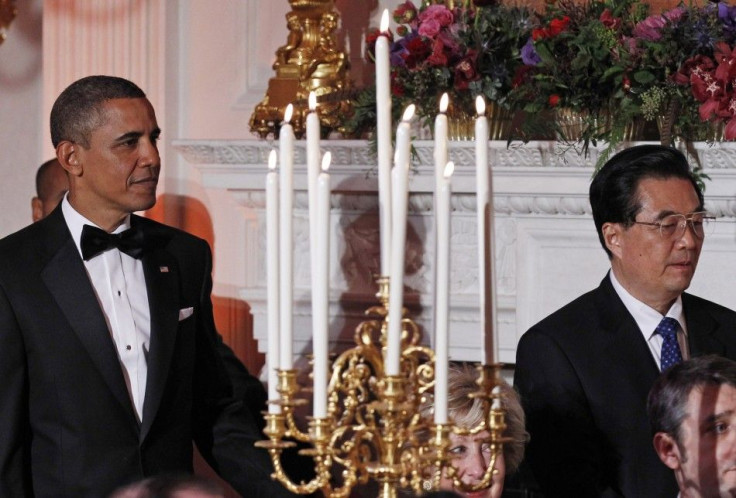China Signals Greater Role In Global Affairs But Sticks To Principle Of Mutual Non-Interference

Signaling China’s intent to take up a more proactive role in international affairs, Beijing mapped out its foreign policy agenda Thursday at the 18th National Congress of the Communist Party.
Presenting an agenda-setting report at the convention in the Chinese capital, outgoing President Hu Jintao signaled greater cooperation between China and other international players while stressing on Beijing’s resolution to protect its national interests and "never yield to any outside pressure.”
Hu said China would “get more actively involved in international affairs, play its due role of a major responsible country,” but added that Beijing would continue to reject “any foreign attempt to subvert the legitimate government of any other countries,” alluding to the attempts by international community to reach a consensus regarding the foreign military intervention in the Syrian civil war, the Associated Press reported.
Hu said the country would aim to improve relations with developed economies and continue to promote friendship and partnership with its neighbors to ensure that China's development would bring them more benefits, reported the China Daily.
“The central challenge for China and its relations with the wider world will be managing its own inexorable rise,” former Australian Prime Minister and China expert Kevin Rudd wrote Friday on BBC’s website as part of a series of features on the challenges for China's new leadership.
Reflecting on Xi Jinping, Hu’s anointed successor, Rudd observed: “Xi has spent a lot of time deepening his understanding of international matters, most particularly China's relationship with the United States.”
China’s military capabilities are significantly less than those of the U.S., but its strategic capabilities, especially in the Indo-pacific region, are becoming greater, according to Rudd.
Though China’s “core interests” in the East Asian theatre, including the territorial and maritime confrontations, are hotly contested by a large number of other regional states, the U.S. remains neutral on the merits of each of these claims and counter-claims, writes Rudd.
“Political nationalism is alive and well across East Asia,” he said. “Despite the fact that the economies of the region are increasingly integrated, the fires of political nationalism can easily be stoked. These in turn become increasingly difficult to manage for the governments of the region - be they democratically elected or otherwise.”
The recent tug-of-war between China and Japan over a set of islands in the East China Sea had Chinese people taking to the streets in the biggest anti-Japan demonstration in seven years. The angry crowd attacked the Japanese restaurants and vehicles in Shenzhen and Hangzhou in the eastern province of Zhejiang which had strong repercussions on Japanese businesses in China and on the tourism industry. Crowds also staged a noisy sit-in at the gates of the Japanese consulate in Guangzhou in August and burned the Japanese flags.
China’s more active role is of great importance for the international community beyond its interests in the Asia-Pacific, especially with regard to its support or protection of Syrian, North Korean and Iranian regimes.
China’s Foreign Minister Yang Jiechi, in a meeting last week with U.N.-Arab League envoy to Syria Lakhdar Brahimi to solicit Beijing’s support for international mediation efforts to end the Syrian crisis, announced a new four-point plan for reaching a political resolution.
The proposal urged relevant parties in Syria to make every effort to stop fighting and violence, and to appoint empowered interlocutors to formulate a roadmap of political transition. It also urged to international community to work with greater urgency and responsibility to cooperate with Brahimi’s mediation efforts and to take concrete steps to ease the humanitarian crisis in Syria.
However, Jiechi’s proposal leaves open the possibility of Assad sharing power in a new government and doesn’t add to the earlier peace plans that have failed.
© Copyright IBTimes 2024. All rights reserved.






















